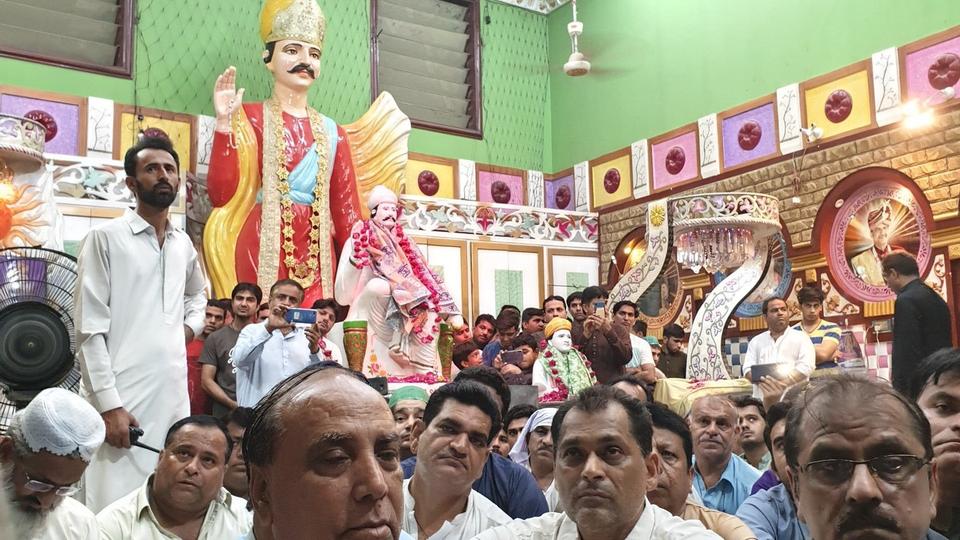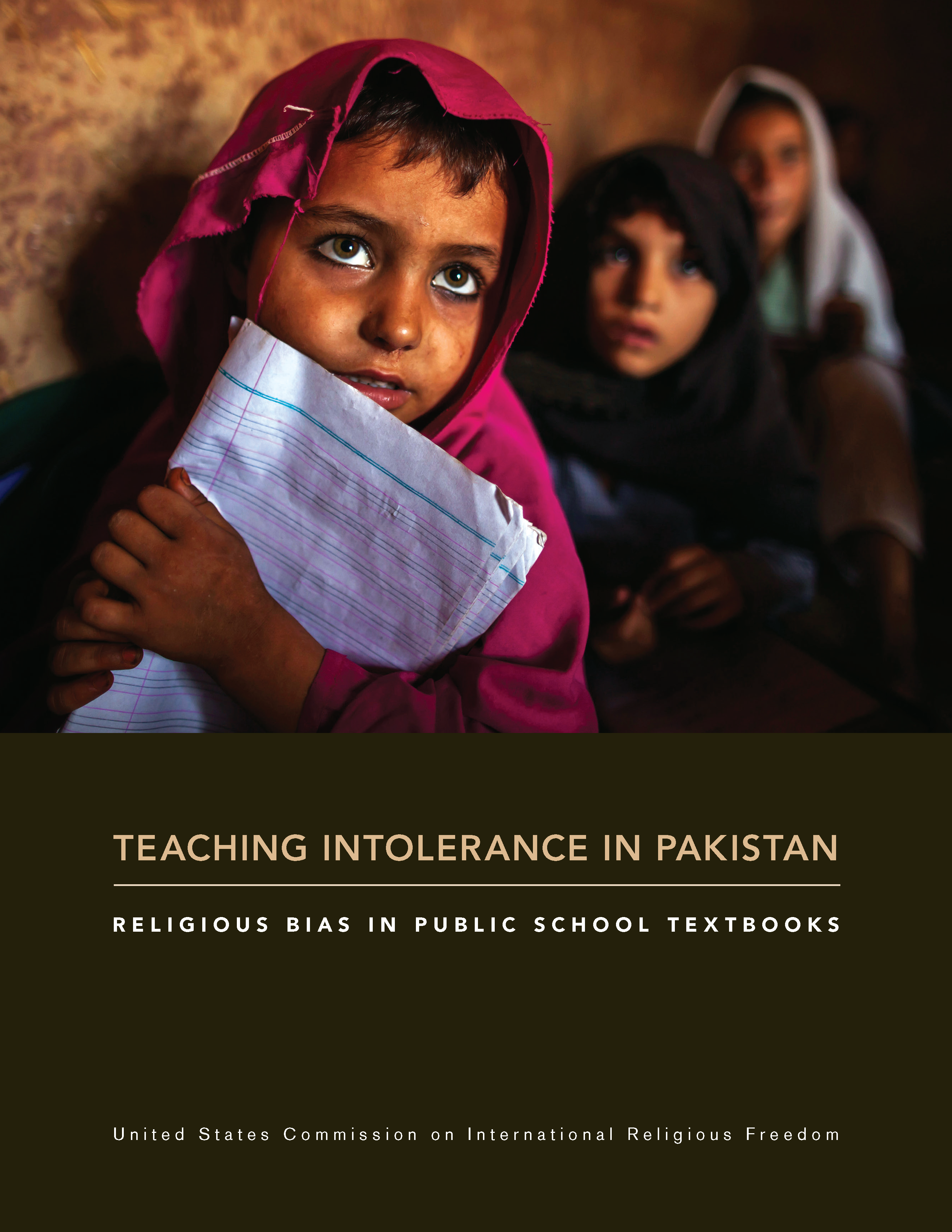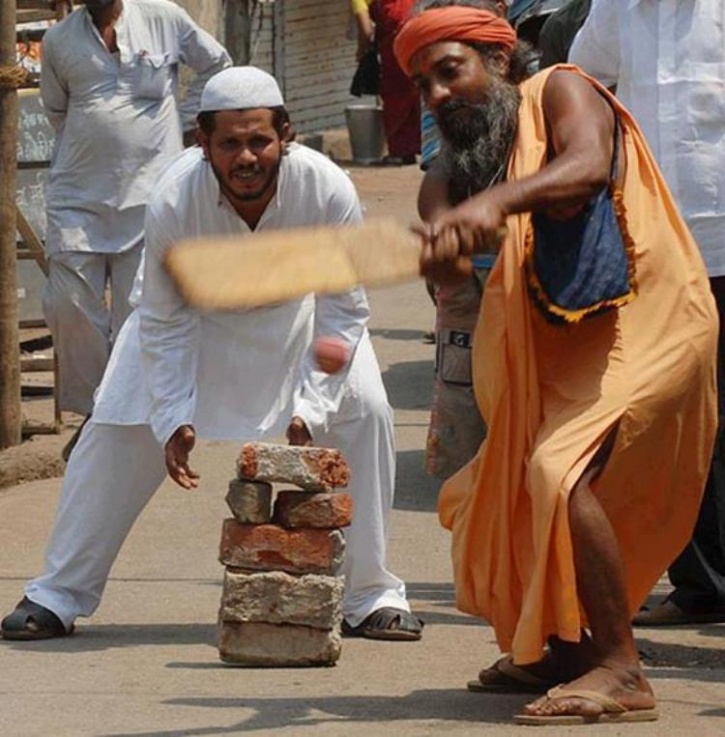After the split of the subcontinent in August 1947, almost 5 million Hindus and Sikhs migrated from Pakistan to India, and 12.9% of the Pakistani population consisted of Hindus. By 2018, the number had come down to 1.6% and is sadly constantly reducing. According to politician Ramesh Kumar Vankwani, 5,000 Hindus migrate from Pakistan to India every year, and the Hindu community now openly asks the question: “Are we not a part of Pakistan?”


It is odd to think that the second largest religious community in Pakistan would feel a strong sense of disassociation with the country that it resides in. The truth, however, is that—in almost 72 years—Hindus have not been able to comfortably live in Pakistan. In fact, the community has often had to face an identity crisis, with individuals not being able to even use their full names. According to a prominent Hindu social worker, Sawai Malhi, the majority of the Pakistani population is not even aware that a Hindu community exists.
This discomfort has various facets; it can either be attributed to the anti-India and anti-Hindu narrative that the Pakistani state uses to justify its existence, to extremist and intolerant terrorist organisations, or to the unforgiving individuals who turn a blind eye when it comes to the situation of those belonging to different religions.
One of the founding ideas behind Pakistan was the “Two Nation theory”. The theory was a high realization point between Muslims and Hindus that they were “mutually antagonistic” and had to be separate. Sawai’s accounts of what he has seen in the community and personally experienced leave no doubt that this idea is still deeply rooted into the mentality of the Pakistani state.
According to Sawai, most people find it hard to distinguish between “Indian” and “Hindu”, and often think of Hindus in Pakistan as agents for Indian intelligence agencies, in other words: “traitors.” Just recently Sawai - who was honoured as an Emerging Leaders of Pakistan Fellow in 2015 - had to vacate his home in Islamabad with his family because someone had complained about Hindus living in the area, and believed that the area could be “better” rented to Muslims.

Even though Sawai agrees that those with progressive mind-sets have often aided the community, he believes that the majority of problems arise from a sense of insecurity and ignorance prevalent among those around the community. This fear of the community propels hate crimes towards them, particularly those involving forced conversions.
Sawai cites the 2012 Rinkle Kumari case as one that shook the Hindu community, due to the crime being backed by powerful politicians. This mistrust in the state is what propels the aforementioned migrations that Ramesh Vankwani mentioned. The fear felt by those who discriminate against the community breeds a desire for the community to fail. One cannot help but see this when Hindu businessmen are extorted for money, and even murdered (as evident through events in Umerkot and Tharparkar in 2014 and 2017), or when students are denied facilities because of their beliefs. Sawai talks of his own children being discriminated against on their first day of school when everyone refused to sit with them due to their religious beliefs.
The biggest problem, it seems, is of recognition. Despite their patriotic roles, Hindus have never been treated as citizens of Pakistan and have always faced suspicion. The rhetoric surrounding them is never of appreciation, but rather of tragedy, or hatred from the likes of those with mass followings such as Hafiz Saeed and Zaid Hamid. Extremist organisations routinely wage war on the religious minorities in Pakistan and seek to conduct a cleansing of these communities.

This is something we expect from religious leaders, such as Khadim Hussain, but it is alarming to see that our leading politicians are architects of similar rhetoric that propels hatred under the guise of religious duty. More often than not this is done to fill a voter bank and leads to jingoistic behaviour, as these passionate orators do not differentiate between religious identity and national identity, once again putting religious minorities outside of the loop. This applies to most parties that uphold a conservative, right wing ideology and, alarmingly, are the popular ones as well.
Anti-Hindu propaganda is also pushed forward by the state and its Islamisation policies. Under the wide ambit of Pakistan’s pernicious blasphemy laws, Hindus, and indeed, other minorities, can be accused of serious crimes. The law has already been misused on countless occasions, and is often manipulated in ways that brings complications upon minorities. Loopholes within the law allow accusers to get away with their claims without having substantial proof to back it up, increasing the disenfranchisement that religious minorities feel within the state.
But the salient matter is of the Pakistani curriculum. Numerous researchers and public intellectuals have mentioned the bigotry that exists within Pakistani textbooks. They are known to paint an anti-Hindu narrative. According to a 2005 report by the National Commission for Justice and Peace in Pakistan, in government-issued textbooks, students are told that Hindus are backward, superstitious, and the main culprits behind the atrocities of the Partition of 1947, as well as the 1971 separation of Bangladesh.

Pakistan’s leading daily DAWN, for instance, commented that textbooks emphasise the inferiority of non-Muslims. A constant mention of India’s “evil designs” against Pakistan further blurs the line between the separate identities of Hindus and Indians.
In the end, it is true that the Pakistani state has been successful in cultivating an anti-Hindu mind-set through the various measures already discussed, and there is no hiding it, even in the eyes of the Hindu community.
However, Sawai believes that there is hope.
He is very hopeful about the talent emerging within the Hindu community, including his own work. His organisation is called the Malhi Social Development Organisation (MSDO) and, with currently almost 500 trained volunteers, has helped fund the education of many students, along with setting up health camps and campaigns to empower the Hindus living in Sindh. There are a handful of brave individuals who have established charitable organisations to aid the community in any way possible, and are not planning on stopping, especially with a considerable number of progressives from all over Pakistan supporting their cause.
And to be fair, the efforts of the government have not gone unnoticed. In the past, pro-Hindu measures have been taken to support the community, namely the comprehensive Hindu Marriage Act, minority job quotas, declaration of Hindu festivals as holidays, the Minority Protection Bill that mentioned forced conversions, etc. The PTI government’s recent call for a further look into forced conversions can be seen as a sign of this progress.
There has been progress, no doubt. The country’s political leadership is beginning to acknowledge the large community, and leaders in Sindh often show solidarity by celebrating traditional Hindu festivals such as Holi, Diwali, Dussehra, etc. Alongside this, two Hindu candidates won non-reserved seats in Sindh’s provincial assembly. But there is still a long way to go.

Sawai suggests certain measures that the community wishes the government to take. He says that they hope to see more Hindus in the civil service, and for the job and admission quotas to be followed more strictly. Introducing a diverse religious studies curriculum could be a temporary fix, but ultimately the current biased narrative in textbook needs to be eradicated. Temples should be more readily available, and protected, as well as situated on campuses.
Ultimately, Sawai says that the community merely wishes “to be treated equally, enjoy equal rights with no fear of being labelled as traitors or spies of any other country, be appreciated for their service, and be allowed to love their country, Pakistan.”
(Originally published in Timsaal, 21st April, 2019)

Sawai suggests certain measures that the community wishes the government to take. He says that they hope to see more Hindus in the civil service, and for the job and admission quotas to be followed more strictly. Introducing a diverse religious studies curriculum could be a temporary fix, but ultimately the current biased narrative in textbook needs to be eradicated. Temples should be more readily available, and protected, as well as situated on campuses.
Ultimately, Sawai says that the community merely wishes “to be treated equally, enjoy equal rights with no fear of being labelled as traitors or spies of any other country, be appreciated for their service, and be allowed to love their country, Pakistan.”
(Originally published in Timsaal, 21st April, 2019)
Comments
Post a Comment